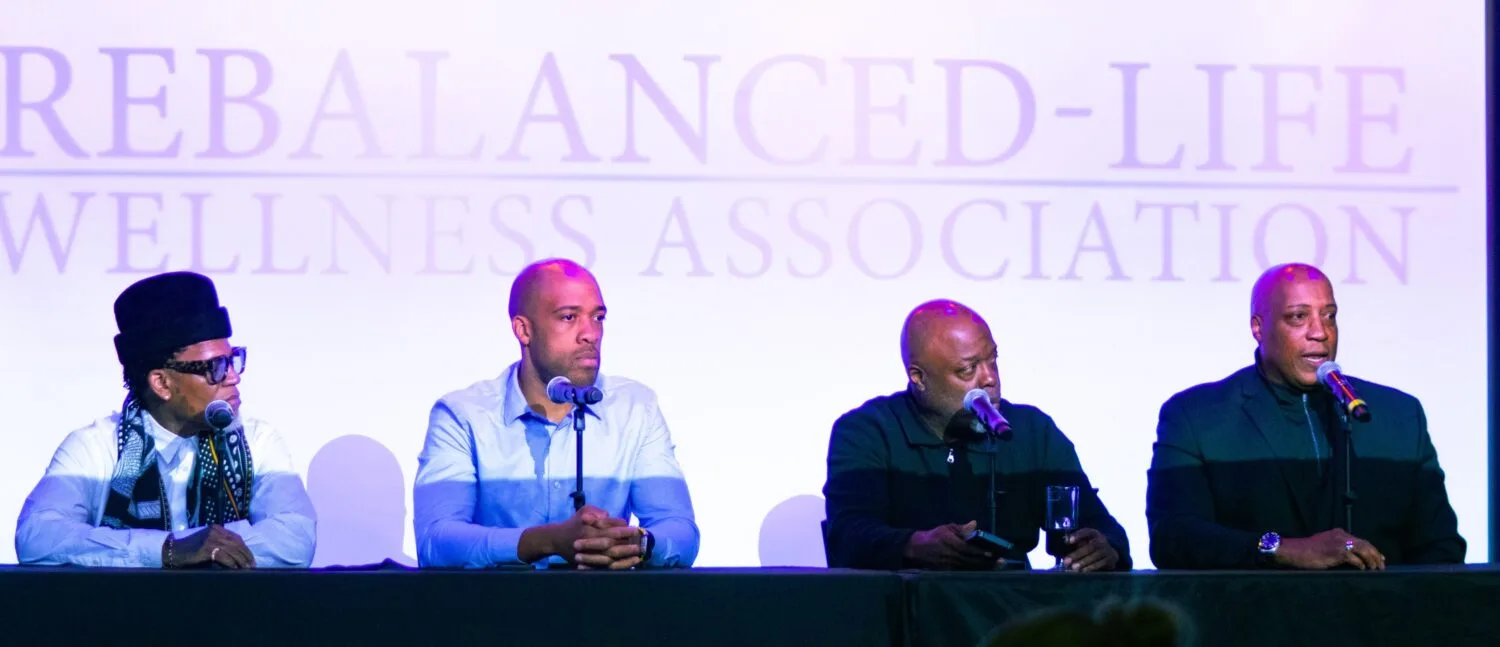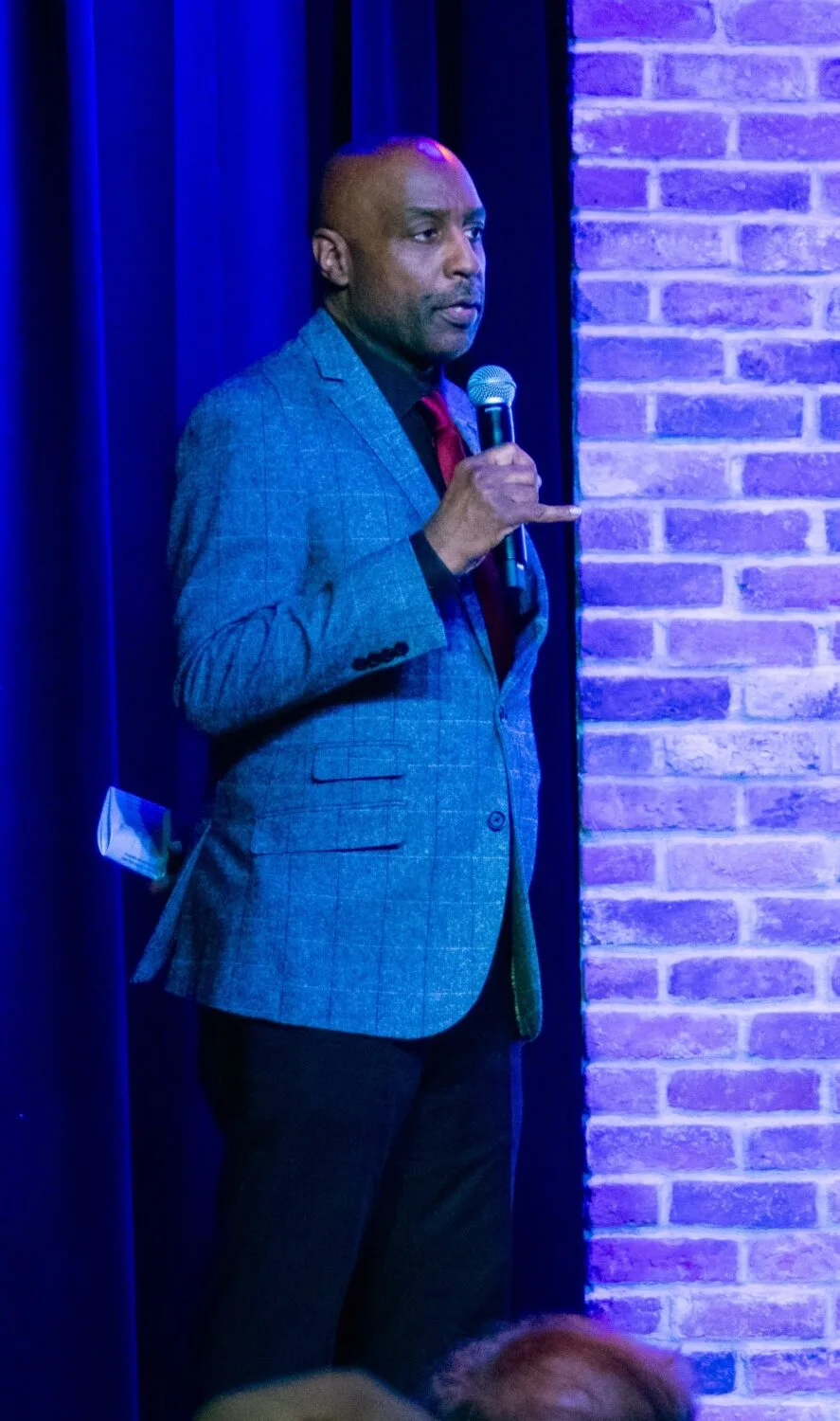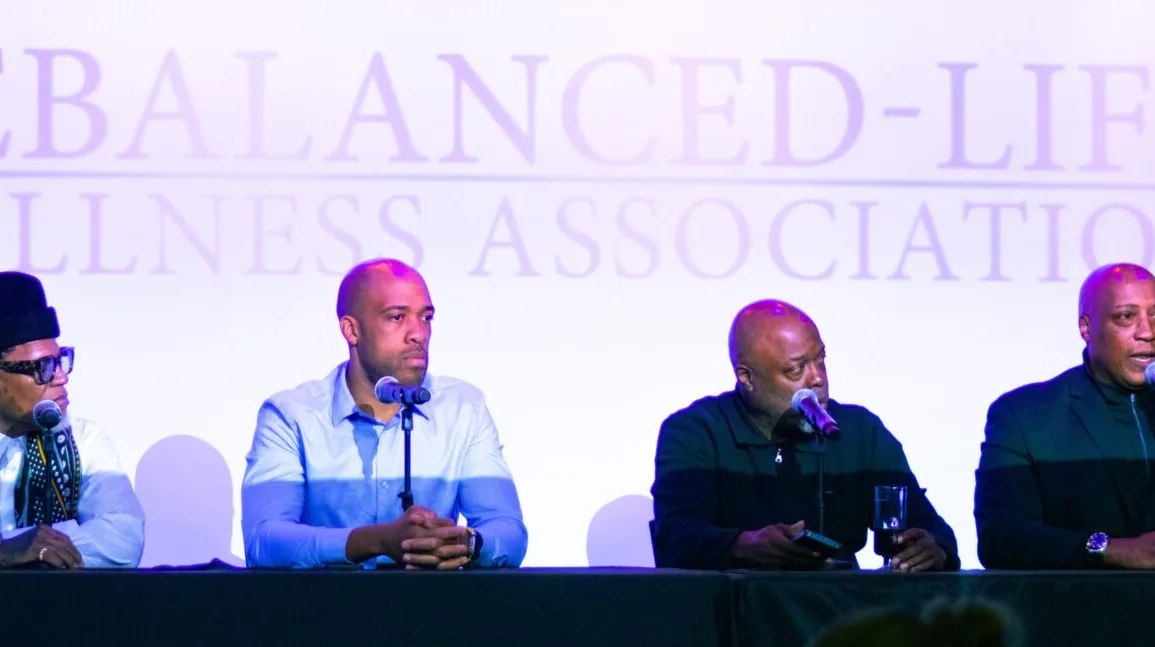The importance of Black men’s health, along with this year’s election, was on the table as the community came together Sunday afternoon for “We Matter,” a powerful discussion on Black men’s physical, mental and emotional health.
Aaron Perry, founder of Rebalanced-Life Wellness, along with comedians D.L. Hughley and Dannon Green and former Lieutenant Governor of Wisconsin Mandela Barnes, came out to Milwaukee Improv in Brookfield to speak on the importance of actively monitoring your health and voting and take questions from the audience on the topics. The two topics go hand in hand because how you vote can affect your health at some point in your life, the group says.

(Photo by Omar Waheed)
“You know I’m one that’s always gonna keep it real … as I look around this room, statistically, somebody will not be with us,” Perry said. “Statistically, you have the power to say that, ‘It ain’t gonna be me.’”
Perry opened on a morbid note to stress the importance and reality of Black men’s health, but it’s a point he’s trying to get across — your health starts with you. Perry used an example of the statistic to bolden the point.

(Photo by Omar Waheed)
“Every single month, a plane takes off with 700-800 Black men, and that plane crashes,” Perry said. “That is the state of Black men’s health.”
Perry has worked to increase awareness of Black men’s health and opened a men’s health and education center at Madison’s largest barbershop, JP Hair Design, to address health and social disparities for Black men in Dane County. He appeared on the Megyn Kelly Show in 2017, was named in Time Magazine’s 2018 “50 Most Influential People in Health Care” and was featured as one of five global leaders changing the world of health.
But his work continues and the “We Matter” community conversations aim to move forward his health advocacy work. The most recent with Barnes, Green and Hughley was the first of the community conversations to have a central location — something Perry wants to continue with future “We Matter” events.
Milwaukee community leader Darrly Davison was the host of “We Matter. Guest speakers pivoted between the two topics of the community conversation and shared their own stories about health.
Green, who had a battle with prostate cancer, shared his journey of overcoming masculinity norms and being a foster kid without knowledge of his family’s health history.
“A lot of Black men don’t like to get their prostate checked,” Green said. “Because we’re too macho.”
Green always tried to stay on top of his health due to not having his biological family members to draw on to see how his health would progress as he aged. His talk was supplemented with humor, as a standup routine initially, but offered vulnerability to humanize a topic Black men have historically been concerned with.
While he has always tried to stay on top of his health, the option for treating his prostate cancer admittedly left him wondering what was best for him. He didn’t see pills and radiation therapy as a real solution for him due to the lifelong side effects. Green opted to have it cut out and monitored for remission. He has been cancer-free for over a decade now.
“You got to remember there’s one thing about prostate cancer — there are no signs,” Green said.
Green pushed the audience to make sure to have regular prostate exams because you can either catch it early, before the signs kick in, or try to tackle it once the cancer has progressed. One in eight men will be diagnosed with prostate cancer, according to the American Cancer Society.
The floor later opened for questions from the community. Speakers stressed the importance of the correlation between voting and health.
“Somebody once told me, ‘Every election is the most important because it might be your last,’” Barnes said. “Every time we say it’s the most important election, I have yet to find a time where that’s not the truth.”
Hugley and Barnes expressed the importance of why voting matters and its health outcomes. Both men are proponents of universal healthcare. The two point to rising healthcare costs and bills, and how the current system ultimately penalizes controlling your health.
“We all know people who have medical bankruptcies, have all sorts of bills that are going into collections because of a high hospital bill. You can’t buy a house, can’t get a loan for a car, all because you went to the doctor,” Barnes said. “That’s why you need a better health care system in this country.”
Hughley pushed Barnes to let the people know how that could be done by asking him ”How can we do that?”
Barnes told attendees to elect politicians who are advocating for their health and change the system.
Perry estimated that over 300 people attended We Matter. Some brought their kids, and Perry wants to see more of that for future community conversations.
“If Black boys do not see their fathers engage in healthy lifestyles and healthy behaviors and really just being good stewards of their health, it’s likely that the young boys will follow suit,” Perry said. “We want to see these young men come up for these events because we value our health, and if we can model that, we begin to see these groups of young people coming in.”
For Perry, the journey starts at home and properly valuing Black men’s health. When he started his advocacy work, the average age of death for Black men in Dane County was 51, according to Perry.


